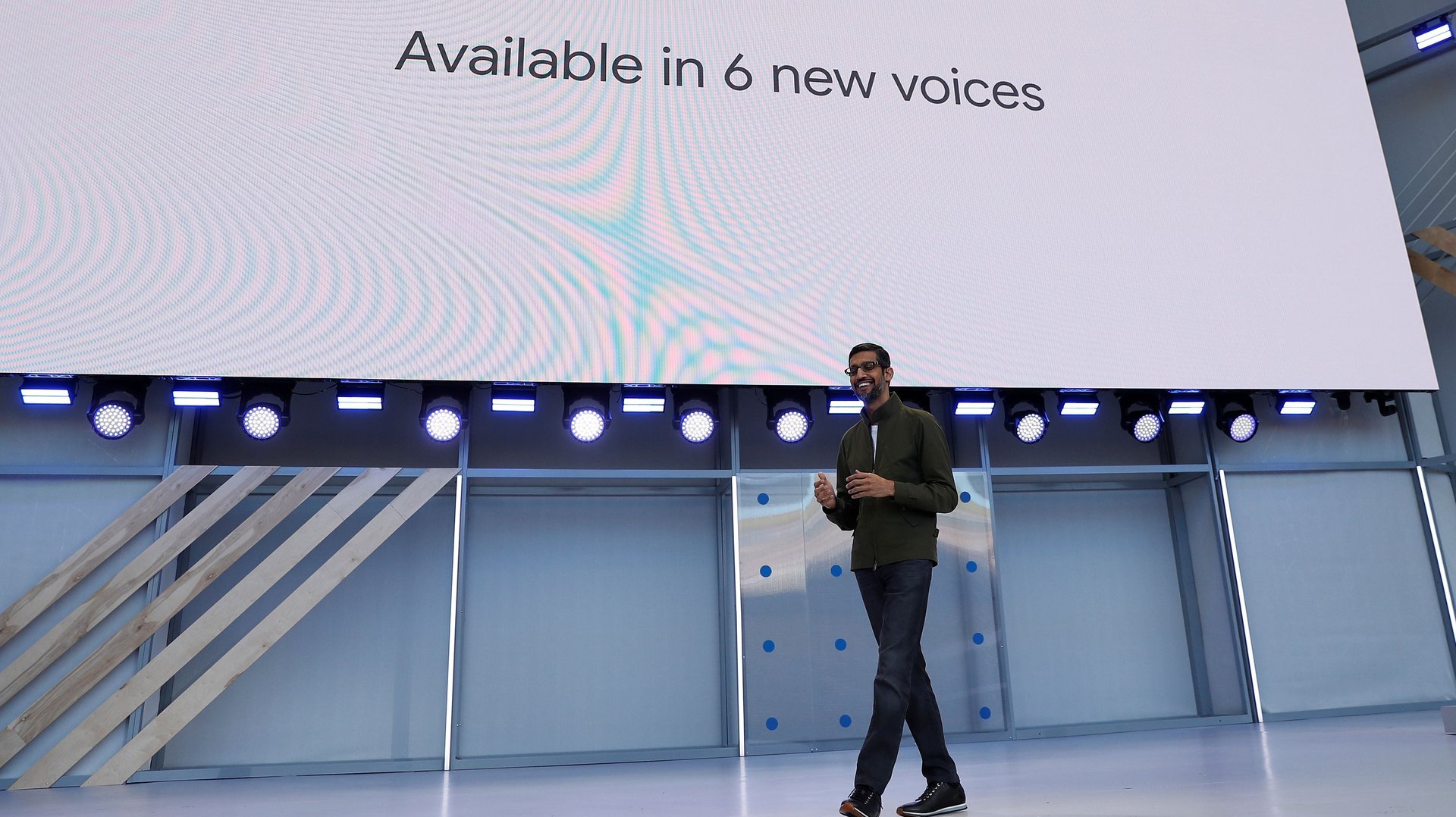Google’s almost-human Duplex is designed to keep us in the virtual world
Last week, Google unveiled Google Duplex, a new technology for conducting natural conversations to carry out “real-world” tasks over the phone. For specific tasks, such as scheduling certain types of appointments, the system allows people to speak normally, like they would to another person.


Last week, Google unveiled Google Duplex, a new technology for conducting natural conversations to carry out “real-world” tasks over the phone. For specific tasks, such as scheduling certain types of appointments, the system allows people to speak normally, like they would to another person.
In CEO Sundar Pichai’s keynote, Google’s AI made a recorded call to a salon to make an appointment for a women’s haircut. The Duplex demo is extraordinary; with its filler words, natural pauses and ability to understand context in a specific situation, Duplex gives us a glimpse of how powerful conversational AI can be when it’s designed for a narrow purpose. In the demonstrations, it was not possible to tell the voice was an AI—vaulting over the so-called Turing test, which makes it seamless for Google to collect real-world information.
“Even in the US, 60% of businesses don’t have an online booking system set up,” according to Pichai. “We think AI can help with this problem.” But then Pichai talked about “a more straightforward use case that we can roll out sooner”—using Google Duplex to call businesses to gather information. For instance, Pichai talked about how restaurant opening hours are difficult to know during holidays, which means that customers can’t rely on Google search results but have to call the restaurants themselves.
With Google Duplex, though, Google can now use AI to call every restaurant in the world to determine opening hours for New Year’s Day, for instance, and make sure that its listings are accurate. That’s helpful to all of us, of course. But it also keeps us going back to Google for more searches, generating more ad revenue for Google. After all, any call to a business that takes place between humans in the physical world is a click lost to the virtual world.
Google Duplex also offers insight into how AI development really happens. The most profound progress occurs when the AI is focused on doing one particular task very well (narrow AI), rather than trying to do lots of things (general AI). In their blog post, the researchers say:
One of the key research insights was to constrain Duplex to closed domains, which are narrow enough to explore extensively. Duplex can only carry out natural conversations after being deeply trained in such domains. It cannot carry out general conversations.